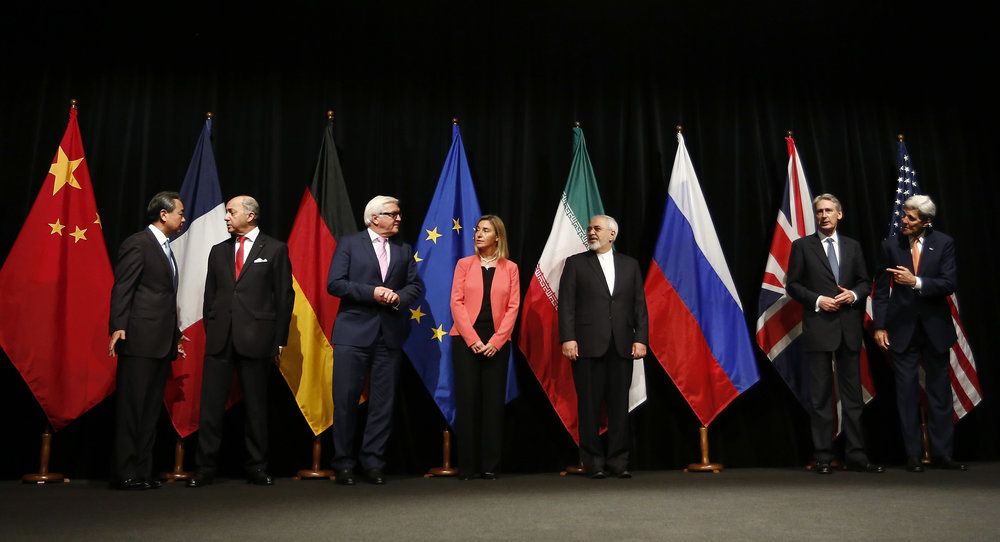JCPOA: One year later

TEHRAN - Last year on July 14 Iran and six world powers – the U.S., Russia, China, England, France, and Germany - signed a historic agreement on Tehran’s nuclear program.
Under the deal, known as the Joint Comprehensive Plan of Action (JCPOA), Iran was granted relief from international sanctions in exchange for a limit on its nuclear activities. The agreement went into effect on January 16 in the current year.
For Iran, the most important achievement of the negotiations was to make the other side recognize Tehran’s right to nuclear technology including uranium enrichment.
On the other, the so-called 5+1 group, believe they have barred Tehran from building nuclear weapons, a claim strongly rejected by Iran as baseless and worn-out.
On the first anniversary, a number of senior Iranian officials commented on the pact, seeing it as a perfect instance that dialogue works.
On Tuesday, President Rouhani said, “The Islamic Republic of Iran proved on this day [July 14, 2015] that it has the political capability to negotiate with world powers to resolve a complicated international issue and defend the Iranian nation’s rights.”
However Rouhani said, “If, some day, the 5+1 refuses [to fulfill] its commitments, we will be completely prepared, and, in terms of nuclear capabilities, we are at such a level so as to be able to reach our desired stage in a short period of time.”
Probably, Rouhani was referring to remarks by the U.S. presidential candidate Donald Trump who was quoted as having said he would “tear up” the nuclear deal if he turns out to be president.
Akbar Hashemi Rafsanjani, chairman of the Expediency Council, hailed the involvement of Iran in the international project on nuclear fusion known as ITER, saying it would have been impossible to achieve this without the nuclear pact.
On July 11, Deputy Foreign Minister Abbas Araqchi laid emphasis on the heavy water deal with Washington, calling it a great achievement for Iran.
“One of the most important achievements of the JCPOA was that we are now recognized as a seller of heavy water by America, which did not accept heavy water production by Iran,” Araghchi noted.
Hamid Baeedinejad, deputy foreign minister as well as top nuclear negotiator, called it a mistake to reduce the JCPOA to a business and economic agreement, saying, “Expectations of the deal should be realistic.”
No redline was crossed to finalize the JCPOA, he stated, rejecting claims in this regard.
On Tuesday, Sergei Ryabkov, a Russian deputy foreign minister and a chief negotiator at the nuclear talks, praised Iran’s commitments to the terms of the deal and said ‘Moscow would also lend its support to other parties’ fulfillment of their obligations.”
The general optimism by senior Iranian officials comes amid hesitations shown by international banks to resume transactions with Iranian partners. They fear falling foul of fines by Washington.
However, a last-ditch attempt underway may change the scene. The Iranian central bank, the U.S. Treasury and international banks were to meet in London on Tuesday to discuss stalled progress on banks resuming ties with Iran, Reuters quoted British Foreign Secretary Philip Hammond as saying on Tuesday.
However, a spokeswoman for the UK Foreign Office later said the meeting had been postponed and would be re-scheduled. She did not give a reason for the delay, or say when it would be held instead.
AK/PA
Leave a Comment